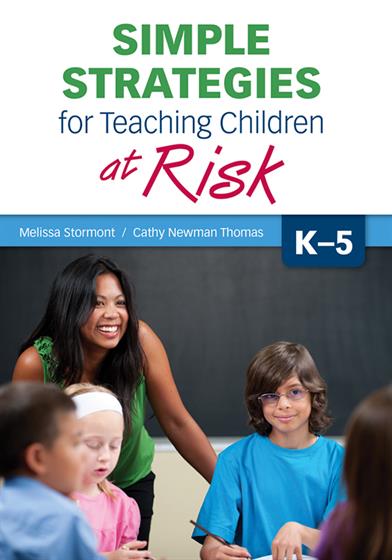Description
Easy to implement strategies teachers can use right now
While opinions differ on how to define students who are “at risk.” most teachers agree that they are seeing more children hit roadblocks due to limited academic experiences, challenging environments, ADHD, or behavioral problems. Teachers often feel underprepared to connect with these students and improve their learning experiences.
In their latest work, Melissa Stormont and Cathy Newman Thomas draw upon their field experiences within special education and psychology to offer K–5 teachers practical tools for building relationships with these children. Readers will discover simple strategies for developing students’ academic aptitude and social behavior as well as how to
- Identify who is at risk for failure and why
- Build positive teacher-student relationships and establish supportive groups among children
- Use data-based decision making
- Provide students with increased time to practice with feedback
- Incorporate technology supports
- Know when and how to involve professionals and families
Moving well beyond mere theory, teachers who are working amid reforms and sweeping cuts can implement these strategies immediately and make a real difference in children's lives. Get started today!
“This is a great book with which to start because it covers the basics—the foundation that needs to be in place before the academics can take hold for a student at risk. The ideas are easy to follow and could be implemented with little or, in some cases, no additional prep—that’s a bonus for an already busy teacher.”
—Barbara L. Townsend, Reading Specialist
West Side Elementary School, Elkhorn, WI
Key features
- Provides a succinct overview of who is at risk for failure in schools—both academically and socially—and why
- Includes easy-to-implement strategies for getting to know children, building positive teacher-student relationships, and establishing strategies for supporting positive relationships among children.
- Provides teacher-friendly tools for data collection and data-based decision making
- Explains specific strategies for supporting desired social behavior, including precorrection, praise, active supervision, setting factors that support problem behavior, and group contingencies.
- Describes 20 simple supports teachers can use with basic materials that can be found in any classroom
- Provides specific web-based tools for use in classrooms, including those for practice opportunities in math, reading, spelling, and those that help students develop social skills
- Includes information on increasing family involvement and understanding the importance of collaborative efforts for families and children at risk




